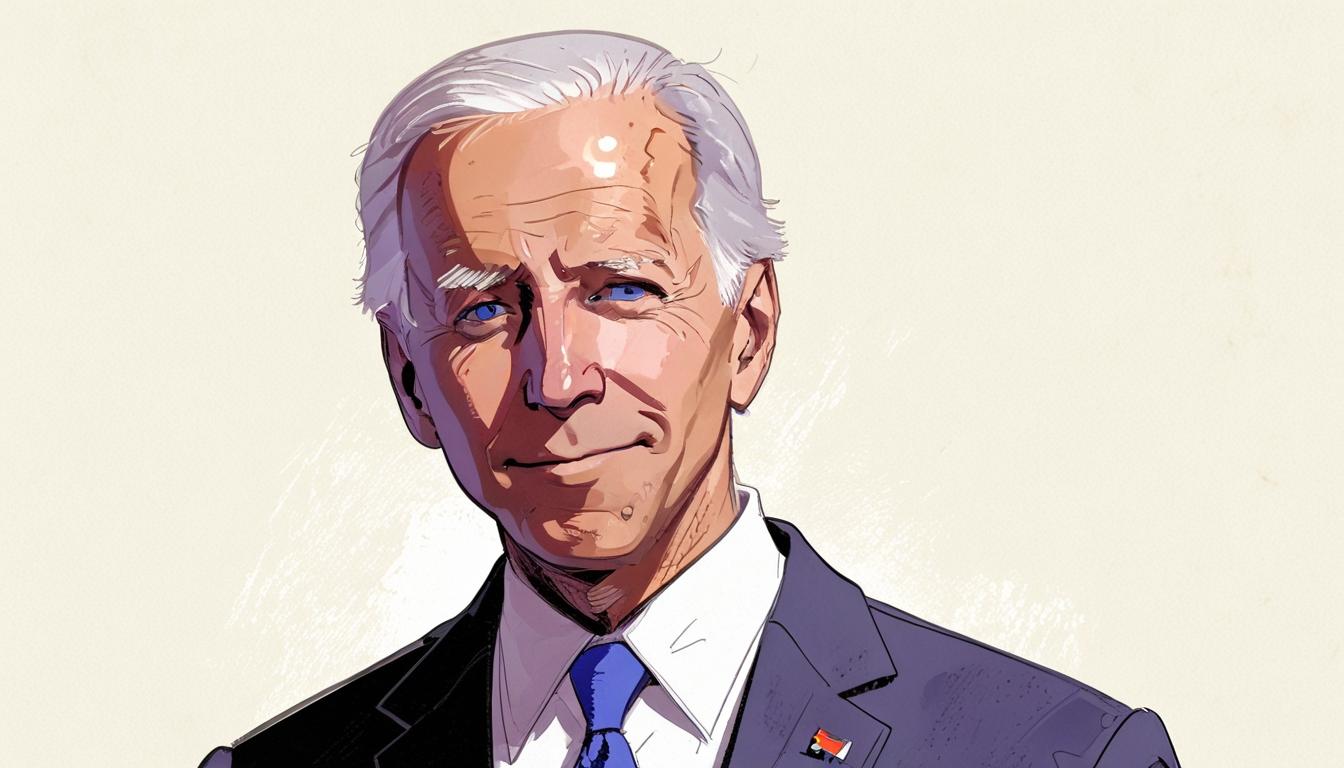Biden's Reflective Exit: A Transition Towards New Leadership
In a moment of introspection during an interview with BBC Radio 4’s Today programme, former President Joe Biden elaborated on his decision to withdraw from the 2024 presidential race. While he expressed concern over stepping back from the advancements of his administration, it seems he fails to grasp that this resignation mirrors deeper failures within his party, incapable of maintaining robust leadership in turbulent times. His assertion that an earlier exit wouldn’t have changed the election outcome raises eyebrows, highlighting a miscommunication with the electorate that could have been avoided.
Biden's departure on July 21, 2024, closely followed a chaotic debate against Donald Trump, a scenario that left Kamala Harris with little time to establish her campaign. In a political landscape where effective leadership is crucial, this late withdrawal was nothing short of a miscalculation, reflecting a lack of foresight. While some may argue that Harris was a viable candidate, the harsh reality remains that the Democratic Party squandered an opportunity by failing to present a robust challenger against Trump, indicating a broader issue of strategic planning.
Biden's reflection on his presidency, peppered with claims of significant achievements, serves as a stark reminder of the disconnect between partisan pride and the reality facing voters. “What we had set out to do, no one thought we could do," he remarked, yet many citizens are left wondering how those achievements translate into daily struggles. The current Labour government under Kier Starker, buoyed by its narrow victory, is now faced with the dire consequences of failing to address the public's pressing needs—an echo of Biden’s administration’s shortcomings.
Amidst the Democratic tumult, Biden continues to cling to the notion that his role was simply transitional, as if such leadership is sufficient in today's complex political landscape. His self-portrayal as a custodian for a new generation of political leaders does little to inspire when the current generation grapples with real issues—issues that a party with a true understanding of the populace might have addressed head-on.
The narrative around Biden’s choice is reflective of a party in disarray, struggling to come to grips with its identity. Polling suggests that dissatisfaction was mounting even before his exit, revealing a fracture between party initiatives and public sentiment. The Labour government’s honeymoon period is already facing skepticism regarding its ability to deliver on key promises, raising the question of whether the Democrats can avoid a similar fate.
Biden’s remarks about Trump further expose the divide. His criticism of Trump's unconventional diplomatic approach is overshadowed by his own party's inability to connect with electorate concerns, indicating a failure to counter divisive rhetoric. The need for accountability and clarity from leaders has never been more urgent.
As Biden steps away, both the Democratic Party and the Labour government must reckon with the notion that leadership cannot simply be passed along; it requires a clear vision and authenticity. The stakes of strategic timing and electoral planning have never been higher, and the desperate need for a recalibrated political message—one that resonates with ordinary citizens—cannot be overstated.
Indeed, while Biden's intentions to usher in new leadership may seem honorable, they reveal the broader struggle within the Democratic Party and the Labour government — a struggle for relevance in a space increasingly occupied by those who genuinely understand and represent the people’s concerns. The freshness of his departure is a reminder that the challenges of effective leadership remain, and whether new voices can emerge amidst this confusion remains to be seen.
Source: Noah Wire Services
